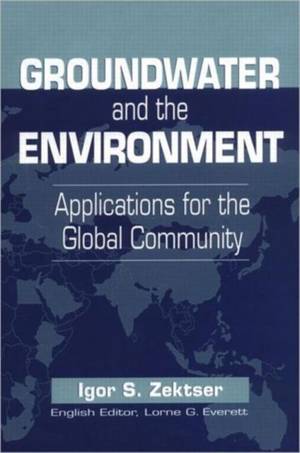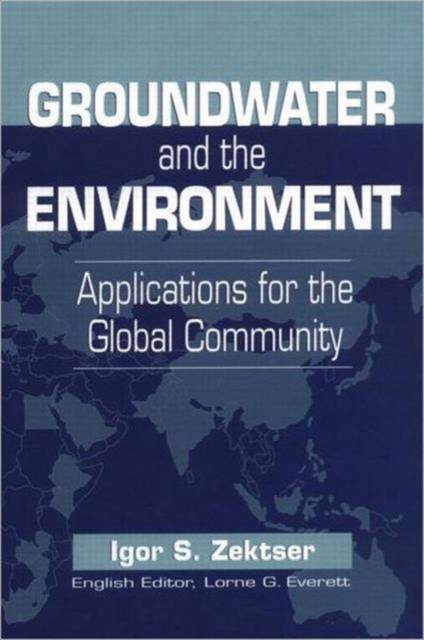
- Retrait gratuit dans votre magasin Club
- 7.000.000 titres dans notre catalogue
- Payer en toute sécurité
- Toujours un magasin près de chez vous
- Retrait gratuit dans votre magasin Club
- 7.000.000 titres dans notre catalogue
- Payer en toute sécurité
- Toujours un magasin près de chez vous
Groundwater and the Environment
Applications for the Global Community
Igor S Zektser, Lorne G Everett
Livre relié | Anglais
236,95 €
+ 473 points
Description
Historically, water has been treated as an inexhaustible resource. However, with the growth of population and development of industry and agriculture, freshwater demand has increased drastically, and its shortage felt in roughly 60% of the Earth. As early as 1931, renowned Russian scholar A.P. Karpansky wrote: "Water is not only a mineral resource, not only a means for developing agriculture. Water is a real culture bearer, it is a living blood, that creates life where there was none".
Groundwater and the Environment: Remediation Applications and the Global Community covers one of the most important ecological problems - the impact on the environment of intensive groundwater pumping out. Drawing on more than a quarter century of study, Zektser analyses and makes conclusions about groundwater exploitation throughout the world. He focuses on the close connection of groundwater to the environment - its affect on surface water streams, reservoirs, seas, landscapes, and vegetation. The author demonstrates the importance of groundwater to the potable water supply, and its interaction with the environment. He stresses the significance of groundwater as a mineral resource. He provides techniques for assessing and mapping natural groundwater resources and develops these principles for studying water and hydrochemicals in coastal zones. In the last twenty years, the global awareness of groundwater as one of the most important natural resources has grown. Any changes in the groundwater causes changes in the environment. Groundwater and the Environment: Remediation Applications and the Global Community increases your ability to predict the possible changes to the environment and to follow the principle: "When using - protect, when protecting - use!"Spécifications
Parties prenantes
- Auteur(s) :
- Editeur:
Contenu
- Nombre de pages :
- 192
- Langue:
- Anglais
Caractéristiques
- EAN:
- 9781566703833
- Date de parution :
- 21-06-00
- Format:
- Livre relié
- Format numérique:
- Genaaid
- Dimensions :
- 186 mm x 263 mm
- Poids :
- 557 g







